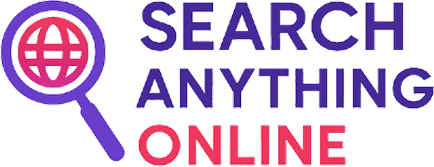
Navigating the Sea of Information: Advanced Search Techniques
In today's digital age, the sheer volume of information available at our fingertips is both a blessing and a challenge. As the internet grows exponentially, the ability to efficiently and accurately find information becomes increasingly crucial. This article explores advanced search techniques that can help you navigate this vast sea of information with precision and confidence.
The Importance of Advanced Search Techniques
Advanced search techniques are essential tools for researchers, students, and professionals alike. They allow you to refine your searches, filter out irrelevant data, and zero in on the most pertinent information. By mastering these techniques, you can save time, improve your research quality, and enhance your decision-making processes.
Understanding Search Engines
Before diving into specific techniques, it is important to understand how search engines work. Search engines use complex algorithms to index and rank web pages. By understanding the basics of these algorithms, you can tailor your searches to yield better results.
Boolean Operators
Boolean operators are fundamental tools that help refine search queries. The three basic Boolean operators are:
- AND: Narrows your search by including results that contain all specified terms.
- OR: Broadens your search to include results that contain any of the specified terms.
- NOT: Excludes results containing the specified term.
For example, searching for "climate change AND policy" will yield results that include both terms, while "climate change OR global warming" will find results containing either term.
Using Quotation Marks
Quotation marks are used to search for exact phrases. When you enclose a phrase in quotation marks, the search engine will only return results that contain that specific phrase. This is particularly useful when looking for specific statements or quotes.
Advanced Search Fields
Many search engines offer advanced search fields that allow you to specify criteria such as date range, language, file type, and more. These fields help narrow down results to meet your specific needs.
Specialized Search Engines and Databases
While general search engines like Google are powerful, there are specialized search engines and databases tailored for specific fields. Utilizing these resources can significantly enhance the quality of your search results.
Academic Databases
For scholarly research, databases like PubMed, JSTOR, and IEEE Xplore offer access to peer-reviewed articles, journals, and conference papers. These databases provide advanced search options to help you find credible and relevant academic resources.
Government and Legal Databases
When researching government policies or legal information, databases like govinfo.gov or LexisNexis provide comprehensive collections of documents, legislation, and court cases.
Tips for Effective Information Retrieval
Refine Your Keywords
Choosing the right keywords is crucial for effective searches. Consider variations, synonyms, and related terms to expand your search possibilities. Experiment with different combinations to see which yields the best results.
Use Filters and Search Tools
Most search engines offer filters and tools to narrow down results by date, location, and other criteria. Familiarize yourself with these options to fine-tune your search results.
Stay Organized
As you gather information, keep track of your sources and organize them systematically. Use tools like bookmarks, reference management software, or spreadsheets to maintain clarity and ensure you can easily access your findings later.
Conclusion
Mastering advanced search techniques is essential in today's information-rich world. By understanding how search engines work and utilizing specialized databases, you can efficiently and effectively navigate the sea of information. Implement these strategies to improve your research skills and make informed decisions based on accurate and reliable data.
With practice, these techniques will become second nature, empowering you to confidently tackle any information challenge you encounter.
Related Articles





